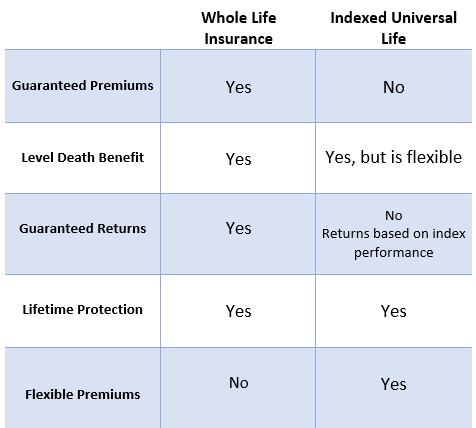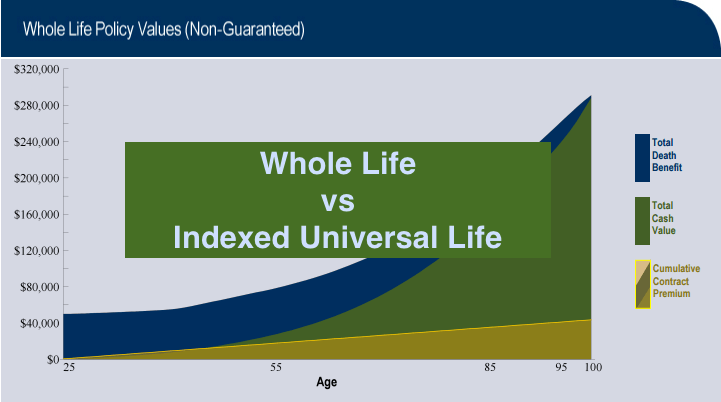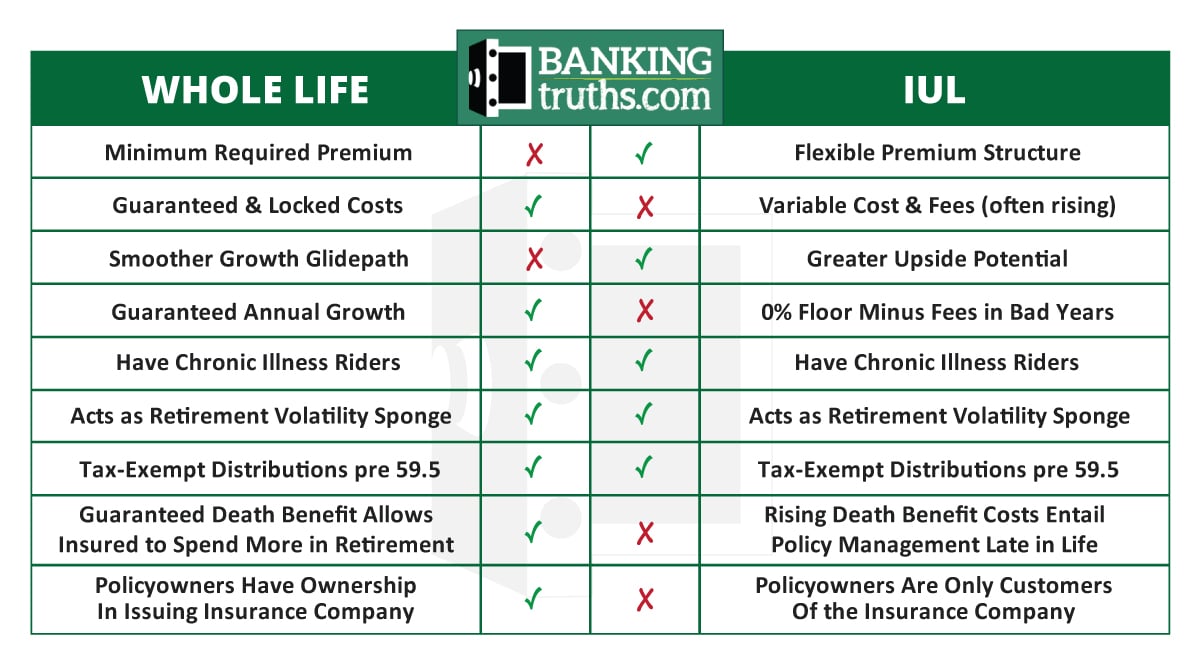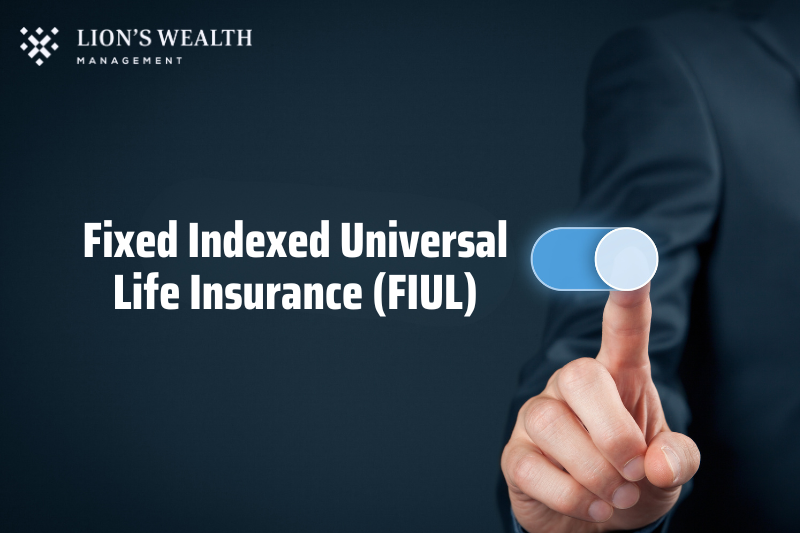All Categories
Featured
Table of Contents
Do they contrast the IUL to something like the Lead Total Amount Stock Market Fund Admiral Shares with no load, an expense ratio (EMERGENCY ROOM) of 5 basis points, a turnover ratio of 4.3%, and an outstanding tax-efficient record of distributions? No, they compare it to some dreadful proactively handled fund with an 8% load, a 2% ER, an 80% turnover ratio, and an awful document of temporary funding gain distributions.
Common funds typically make annual taxed circulations to fund proprietors, even when the value of their fund has actually gone down in worth. Common funds not only need income coverage (and the resulting annual taxes) when the shared fund is increasing in worth, however can likewise impose revenue taxes in a year when the fund has gone down in worth.
That's not exactly how shared funds function. You can tax-manage the fund, gathering losses and gains in order to lessen taxable circulations to the investors, but that isn't somehow going to change the reported return of the fund. Just Bernie Madoff kinds can do that. IULs avoid myriad tax traps. The possession of mutual funds may call for the mutual fund proprietor to pay estimated taxes.

IULs are very easy to position so that, at the owner's fatality, the recipient is not subject to either income or inheritance tax. The very same tax obligation reduction methods do not function almost also with common funds. There are various, frequently expensive, tax traps associated with the timed trading of mutual fund shares, catches that do not put on indexed life Insurance coverage.
Chances aren't extremely high that you're mosting likely to go through the AMT because of your mutual fund distributions if you aren't without them. The remainder of this one is half-truths at ideal. While it is true that there is no revenue tax due to your heirs when they acquire the profits of your IUL policy, it is also real that there is no earnings tax obligation due to your successors when they inherit a common fund in a taxed account from you.
Index Universal Life Insurance Canada
There are far better means to stay clear of estate tax problems than getting investments with reduced returns. Common funds might trigger revenue tax of Social Protection advantages.

The growth within the IUL is tax-deferred and might be taken as free of tax earnings using financings. The policy owner (vs. the mutual fund supervisor) is in control of his/her reportable revenue, hence enabling them to minimize and even eliminate the taxes of their Social Protection benefits. This is great.
Right here's an additional marginal concern. It's real if you get a common fund for claim $10 per share just before the distribution date, and it disperses a $0.50 circulation, you are then mosting likely to owe tax obligations (most likely 7-10 cents per share) regardless of the reality that you haven't yet had any kind of gains.
In the end, it's truly about the after-tax return, not how much you pay in tax obligations. You're also probably going to have more cash after paying those taxes. The record-keeping needs for having shared funds are significantly much more complicated.
With an IUL, one's records are maintained by the insurer, copies of yearly declarations are mailed to the proprietor, and distributions (if any kind of) are completed and reported at year end. This one is additionally kind of silly. Obviously you ought to maintain your tax documents in instance of an audit.
Iul Life Insurance Vs Whole Life
Hardly a reason to buy life insurance coverage. Common funds are typically part of a decedent's probated estate.
Furthermore, they are subject to the delays and expenses of probate. The profits of the IUL plan, on the other hand, is always a non-probate distribution that passes outside of probate directly to one's called beneficiaries, and is consequently not subject to one's posthumous lenders, undesirable public disclosure, or comparable delays and costs.
Medicaid disqualification and lifetime income. An IUL can provide their owners with a stream of income for their whole life time, no matter of exactly how lengthy they live.

This is advantageous when organizing one's events, and converting possessions to earnings prior to an assisted living facility confinement. Common funds can not be transformed in a similar fashion, and are practically constantly taken into consideration countable Medicaid properties. This is one more dumb one supporting that bad individuals (you understand, the ones that require Medicaid, a government program for the inadequate, to pay for their assisted living home) need to utilize IUL instead of mutual funds.
Best Indexed Universal Life Insurance Companies
And life insurance policy looks terrible when contrasted rather against a retired life account. Second, individuals who have money to get IUL above and past their retirement accounts are mosting likely to need to be awful at managing cash in order to ever before receive Medicaid to pay for their assisted living facility costs.
Persistent and incurable health problem rider. All plans will certainly enable a proprietor's very easy accessibility to cash from their plan, often forgoing any type of abandonment fines when such individuals suffer a serious health problem, require at-home treatment, or become constrained to a retirement home. Common funds do not give a similar waiver when contingent deferred sales fees still put on a shared fund account whose owner needs to sell some shares to money the prices of such a stay.
S&p 500 Insurance Companies
Yet you reach pay more for that advantage (rider) with an insurance coverage policy. What a large amount! Indexed global life insurance policy provides survivor benefit to the beneficiaries of the IUL owners, and neither the proprietor nor the recipient can ever before lose money because of a down market. Shared funds give no such assurances or survivor benefit of any kind.
I definitely do not need one after I get to economic independence. Do I desire one? On standard, a buyer of life insurance coverage pays for the true expense of the life insurance policy benefit, plus the costs of the plan, plus the earnings of the insurance policy company.
Best Indexed Universal Life Companies
I'm not totally sure why Mr. Morais threw in the whole "you can't shed money" again below as it was covered rather well in # 1. He just wished to repeat the most effective selling point for these points I mean. Again, you don't lose small dollars, however you can shed real dollars, as well as face significant possibility price because of reduced returns.

An indexed universal life insurance coverage plan owner may exchange their plan for an entirely various plan without setting off revenue tax obligations. A common fund owner can stagnate funds from one shared fund company to another without offering his shares at the previous (hence causing a taxed occasion), and redeeming new shares at the latter, often subject to sales costs at both.
While it holds true that you can exchange one insurance coverage for another, the factor that people do this is that the first one is such a horrible plan that even after buying a new one and going through the very early, unfavorable return years, you'll still appear in advance. If they were offered the best policy the very first time, they shouldn't have any type of desire to ever trade it and experience the early, negative return years once again.
Table of Contents
Latest Posts
Iul 7702
Ul Mutual Insurance Company
Universal Seguros
More
Latest Posts
Iul 7702
Ul Mutual Insurance Company
Universal Seguros